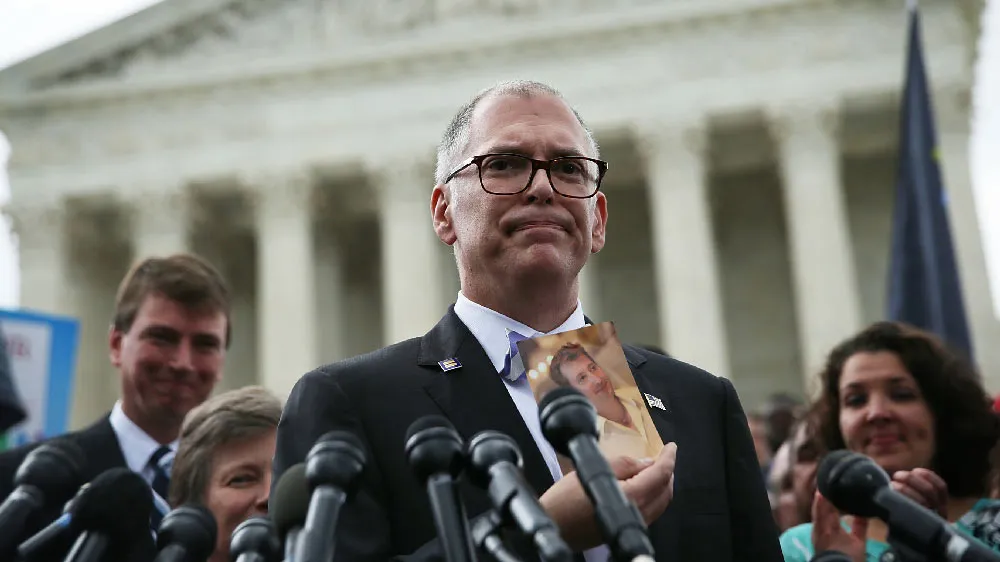September 12, 2011
HIV: Meditate on It
Scott Stiffler READ TIME: 5 MIN.
For Manhattanites dogged by August's relentless heat and humidity, it helps to have an annual means of escape. Just knowing you're going to get away from those 2 a.m. temperatures that never leave the 80s is, in itself, a form of healing. It also helps that your residence for the next four days affords lakeside breezes, quiet contemplation, and sprawl that seems downright exotic to urbanites.
You could get used to this -- but the illusion of security that comes with permanence isn't why you're here.
Tracing its roots practically back to the start of the AIDS crisis, the Dai Bosatsu Zendo Healing and Wellness Retreat (designed for those living with HIV/AIDS and their caregivers) recently held its 24th annual meeting.
Set in the Catskill Mountains beside a lake -- and surrounded by 1,400 acres of maple forest -- the retreat is an annual source of physical/spiritual networking (over half of the participants are returnees).
The four-day event offers meditation instruction, a writing workshop, yoga classes, individual massage, hiking, and the chance to interact with the Japanese-style Zen Buddhist Monastery's monks.
With the days behind us when HIV was a swift death sentence, Buddhism has become an effective tool to improve quality of life, rather than a coping mechanism for impending death.
A Temporary Retreat With Lasting Results
Retreat Coordinator Paul (not his real name) has been attending since 1992, and met his partner there in 1994. They've been coordinating the event for the past several years. "It's a temporary community each summer that gets really close really fast," says Paul.
Bonded by HIV -- as well as their interest in Buddhism and meditation -- Paul notes that some of the greatest take home moments have come from "just sitting around the guest house, talking. I've gotten advice about various supplements to take, and new information about different support groups."
As for the benefits that come with Buddhism, Paul says, "I like the trappings of Buddhism, and its spirituality-but without the small-minded religious fundamentalism I grew up with. I found that through meditation, through learning how to be still and quiet, the peace sort of arrives in a way."
What the retreat has provided at first, then over the years, is, "a sense of calm and getting away from the city; and a real refuge." Over time, that sense of temporary escape has given way to a deeper means of accessing peace of mind. Although he still enjoys the annual destination event, Paul says that these days, "Meditation can do in a few minutes what I used to get away from the city to do."
Lisa Freedman, whose participation in this year's August 14-17 retreat was her sixth, says there's much to be gained from the experience, even though she doesn't identify as Buddhist. "I'm a regular practitioner of meditation," Freedman notes. "But a Buddhist? I call myself a dabbler."
HIV positive since 1991, Freedman recalls that diagnosis as a spiritual wake-up call. "It made me confront my own passivity and face the fact that my life is short, just like everybody else's, and I better really start living it consciously."
Years later, meditation allowed her to concentrate on living in the present. Today, she said, "Meditation is a tool that helps me be conscious of how I am projecting my own self-doubts out onto other people. Once I'm conscious of that stuff, I can question it."
"I often remind myself of the bumper sticker my acupuncturist Jackie Haught has above her desk: 'You don't have to believe everything you think.' Remembering this gives me a chance to be open to all kinds of possibilities in any given moment, and that's freeing and scary and how I'd like to be alive while I can be."
Far from ceding control over her life by the act of surrendering, Freedman specifies that, "It's not that I don't try to take care of myself and be healthy. But I do know that I don't have control over when I'm going to die or how long I'm going to live. It's just kind of freeing to not be in charge."
Benefits, Even for the Non-Buddhist
Asked how the practices taught at the retreat have helped her live with HIV, Freedman says "It feels to me like the HIV diagnosis and the mediation are two tools to help me be in touch with mortality and the preciousness of every day. They work in tandem. For me, the HIV diagnosis made me contemplate my mortality, which feels like a gift and a burden at the same time...There's so much uncertainly about HIV, it helps to have a practice that teaches you that uncertainly is the nature of existence."
Contemplating mortality's role in the nature of existence is the retreat's centerpiece event. Its AIDS O-Bon Celebration puts an HIV spin on the traditional Buddhist ceremony commemorating one's ancestors.
In the early days of AIDS, Paul recalls, "The ceremony was even more poignant, because you're asking your loved ones who've passed on to come back to join us for the weekend. Living with a disease like HIV, you have a lot of them."
A visually striking aspect of the ceremony, Paul notes, happens when "We make lanterns that are painted with Japanese ink on rice paper. They're lit with a candle in the middle and floated out on the lake the next evening."
Although he's not necessarily a believer in our ability to reconnect on this physical plane with departed loved ones, Paul says, "I feel like something is happening. It might be just because it's so quiet and beautiful." Freedman, who had a Jewish father and a Catholic mother, "wasn't raised with any religion," and says she's "of no particular religious faith."
As for what she gets out of the O-Bon Celebration, she confesses, "To be totally honest, it's aesthetically gorgeous. My dad died in April of this year, so I was honoring him." Although she recalls, "There were some moments where I thought I could feel my dad or friends who've passed, it's all just a little not too solidly defined for me at this point."
Rather than pine for the comfort many religions provide when it comes to assuring believers that a better life awaits us after death, Freedman's use of meditation and embrace of the Buddhist philosophy has equipped her to better navigate the uncertainties of HIV. As for the possibility of a life beyond this one, "I'm pretty comfortable with total mystery, and I'm not really looking for any particular answer or belief to hold on to."
For more information about the Dai Bosatsu Zendo Healing and Wellness Retreat, visit www.zenstudies.org, or email [email protected].
Scott Stiffler is a New York City based writer and comedian who has performed stand-up, improv, and sketch comedy. His show, "Sammy's at The Palace. . .at Don't Tell Mama"---a spoof of Liza Minnelli's 2008 NYC performance at The Palace Theatre, recently had a NYC run. He must eat twice his weight in fish every day, or he becomes radioactive.






